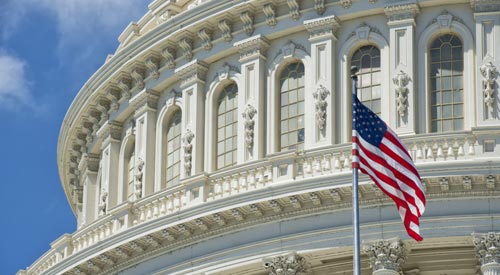-
Business
-

Policy & Business
-
-
Federal IT
-

Information Technology
-
-
State & Local
-

State & Local Government
-
-
Defense
-

Defense & Intelligence
-
-
Healthcare
-

Healthcare Policy & IT
-
-
Energy
-

Energy Policy & Technology
-
-
Education
-

Education Policy & Technology
-
California Could Be the Next State to Ditch Daylight Saving Time
Governing: California, the world's sixth-largest economy, is the latest state to flirt with the idea of no longer falling back in November and springing forward in March. Voters in the state will decide this fall whether to abolish the biennial practice of changing the clocks.
The ballot measure’s sponsor, Democratic Assemblyman Kansen Chu, points to the medical risks associated with the time change. According to a 2011 study by the University of Alabama at Birmingham, the risk of heart attack increased 10 percent in the two days after a clock adjustment. A 2016 study in Finland noted an 8 percent increase in strokes during a similar time period.
Top Stories
- Future-proofing smart cities with open standards
- 5 States Challenged the Federal Contractor Wage Increase and Lost
- States should follow feds in Chinese tech bans
- A new initiative seeks to help small cities access infrastructure funding
- Governments view open source as critical for enhancing digital services, experts say
- More States Move to Ban TikTok from Government Devices
- Cyber, digital services, workforce primary focus for state CIOs in 2023
- Virginia has a data center problem
- Efficient public safety demands evolving tech
- Digitized services drive citizen satisfaction
- State chief information officers are handling much more than just tech
- States target mainframes in legacy system modernization
- How one city’s IT team keeps up with rapid growth
- How one agency’s cloud migration smoothed the path for others
- NASCIO: States must ‘hyper-focus’ on IT modernization
- Louisiana Becomes First State to Receive Internet for All Grants
i360Gov Newsletters
The most significant government policy, business, and technology news and analysis delivered to your inbox.
Subscribe NowTrending
- Mayor launches IT modernization to boost services delivery
- Local government on the edge: The future of IT infrastructure
- Digitized services drive citizen satisfaction
- Why cities and towns see a huge economic opportunity in the semiconductor bill
- New York state pumps the brakes on crypto mining
- The best offense is a strong defense: Improve cloud security with visibility and zero trust segmentation
- How state and local leaders can use data to ensure broadband access for all
- Over $105 Million Going to Better Internet for Native American Communities
Also in State & Local Government
About
i360Gov is an intelligent network of websites and e-newsletters that provides government business, policy and technology leaders with a single destination for the most important news and analysis regarding their agency strategies and initiatives.
Contact Us
Telephone: 202.760.2280
Toll Free: 855.i360.Gov
Fax: 202.697.5045











